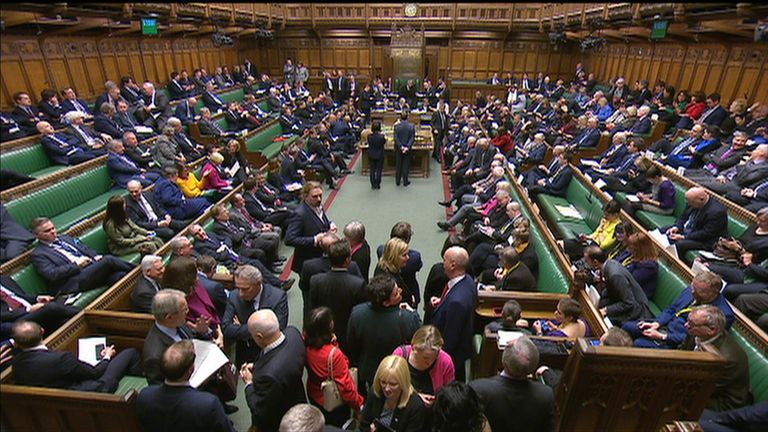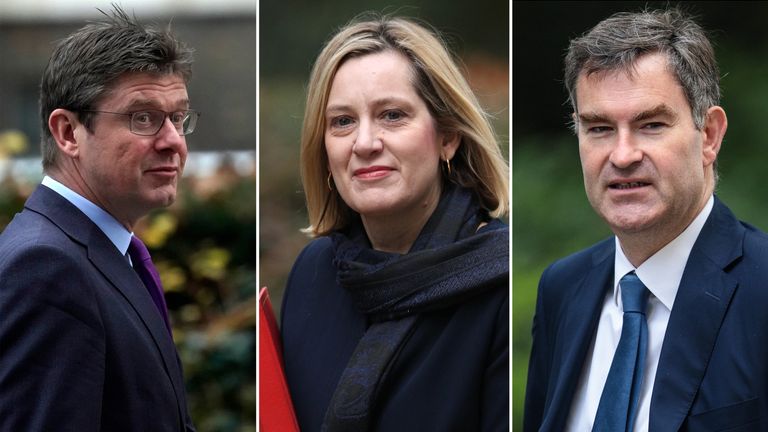Theresa May signals she is keen to stay after Brexit ‘to deliver domestic agenda’
Theresa May has dropped her strongest signal yet that she intends to stay on as prime minister after Brexit, despite some ministers reportedly wanting her to quit as early as the summer.
Speaking from Sharm el Sheikh in Egypt amid the first-ever conference of EU and Arab leaders, Mrs May said she was determined to push ahead with her domestic agenda once Britain leaves the trading bloc on 29 March.
Hours after sparking anger in Westminster by delaying another meaningful vote on her Brexit deal until 12 March, the prime minister indicated that she wanted to continue in Number 10 to deal with issues like the NHS.
Referencing her pledge to create a fairer society when she first entered Downing Street, Mrs May said: “I was very clear in December with the Conservative Party that as far as I’m concerned, what I am doing, my job is not only about delivering Brexit, actually there’s a domestic agenda that I am delivering on.
“It reflects what I said on the doorstep of Number 10 when I first became prime minister.
“That is why we’ve been making key decisions like the extra money for the NHS, the long-term plan for the NHS, and there is still a domestic agenda that I want to get on with – deliver.”
In the lead-up to Christmas, Mrs May said she would not lead the Conservatives into the next scheduled general election in 2022.
The move was thought to have been key in helping her to survive a vote of no confidence in her leadership, and she later pulled through again after Jeremy Corbyn tabled a vote of no confidence in the government.
That first victory means her party cannot attempt to oust her again until the end of this year, but there have been reports that several senior colleagues want her to walk away from her job after the May local elections.
Britain should have left the EU by then, although more and more MPs, including cabinet ministers, are calling for an extension to the negotiating period to allow Britain more time to iron out the proposed deal.
The last attempt to extend – tabled by Ian Blackford, the leader of the SNP in Westminster – was defeated, but Mrs May could face an amendment in the House of Commons this week that would again call for more time.
Over the weekend, three pro-EU cabinet ministers – Amber Rudd, David Gauke and Greg Clark – signalled they could be prepared to vote for it if there was no breakthrough in the negotiations.
There was speculation that up to 100 Tory MPs – including as many as 20 ministers – could be prepared to join them.
But Mrs May said on the first day of her trip to Egypt that extending Article 50 – which got the clock ticking on Brexit almost two years ago – would achieve little.
On whether an extension could allow more time for a deal that would be acceptable to parliament to be thrashed out, the prime minister said: “An extension of Article 50 doesn’t solve the problem.
“There will always come a point where we have to decide whether we accept the deal that’s been negotiated or not.
“And that will be a decision for every member of parliament across the House.”
Mrs May remains hopeful that Britain will leave the EU with a deal, and will hold further meetings with European leaders before MPs get to vote on her deal on 12 March.
She is due to meet German Chancellor Angela Merkel and Dutch Prime Minister Mark Rutte in Egypt on Monday as she continues to seek a resolution to the impasse over the Irish backstop, which is designed to prevent a hard border between Ireland and Northern Ireland.
Irish deputy prime minister Simon Coveney told Sky’s Sophy Ridge on Sunday that there could not be any movement on the withdrawal agreement, and said the backstop had to stay as it was.
His position was reiterated by Irish Prime Minister Leo Varadkar later the same day, who said there could be no time limit on the backstop because it then would not be a backstop.
Regardless of what happens next, Britain will still need to agree on a future relationship with Brussels.
Mrs May said: “The complete package of Brexit, we leave on March 29, but also we have to put in place that future relationship because that’s about the sustainable long term relationship of the UK with the EU.”
Source: Read Full Article




